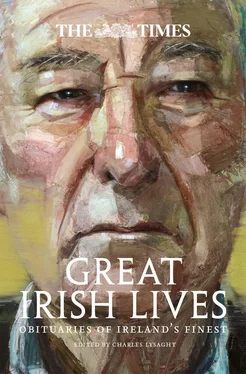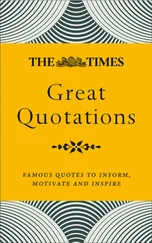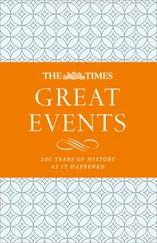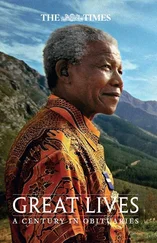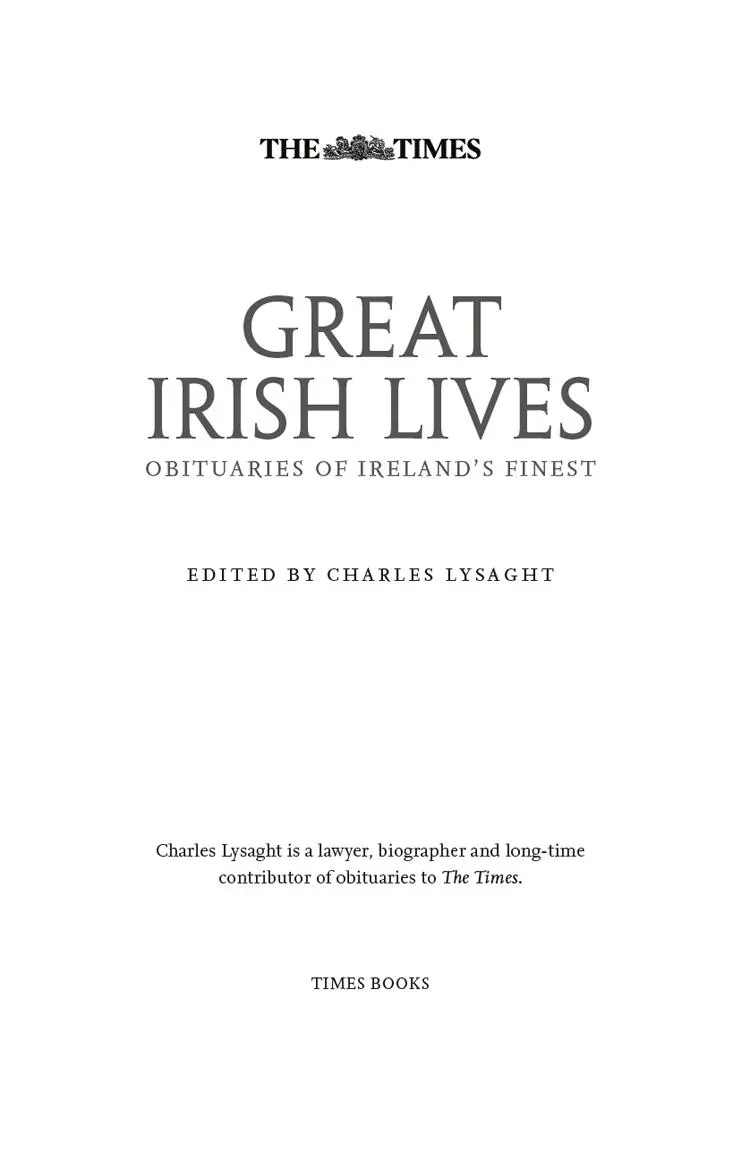
COPYRIGHT
Published by Times Books
An imprint of HarperCollins Publishers
Westerhill Road
Bishopbriggs
Glasgow G64 2QT
www.harpercollins.co.uk
Ebook First Edition 2016
© Times Newspapers Ltd 2016
www.thetimes.co.uk
Ebook Edition © September 2016
ISBN: 9780008222574, version 2016-10-13
The Times is a registered trademark of Times Newspapers Ltd
All rights reserved under International Copyright Conventions. By payment of the required fees, you have been granted the non-exclusive, non-transferable right to access and read the text of this e-book on-screen. No part of this text may be reproduced, transmitted, down-loaded, decompiled, reverse engineered, or stored in or introduced into any information storage and retrieval system, in any form or by any means, whether electronic or mechanical, now known or hereinafter invented, without the express written permission of HarperCollins e-books.
The contents of this publication are believed correct. Nevertheless the publisher can accept no responsibility for errors or omissions, changes in the detail given or for any expense or loss thereby caused.
HarperCollins does not warrant that any website mentioned in this title will be provided uninterrupted, that any website will be error free, that defects will be corrected, or that the website or the server that makes it available are free of viruses or bugs. For full terms and conditions please refer to the site terms provided on the website.
A catalogue record for this book is available from the British Library
Cover Image:
“From Everywhere and Nowhere (Seamus Heaney)”
Colin Davidson b. 1968 © Colin Davidson. 2013 Collection Ulster Museum
CONTENTS
Cover
Title Page
Copyright
Introduction
Henry Grattan
Daniel O’Connell
Maria Edgeworth
Tom Moore
Father Mathew
William Dargan
Earl of Rosse
Cardinal Cullen
Charles Stewart Parnell
Sir John Pope Hennessy
Mrs Cecil Alexander
Oscar Wilde
Lord Morris of Spiddal
Archbishop Croke
Michael Davitt
The O’Conor Don
Sir W. H. Russell
John Millington Synge
Sir Luke O’Connor
John Redmond
Cardinal Gibbons
Michael Collins
Erskine Childers
Thomas Crean V. C.
Lord Pirrie
Lord MacDonnell
Kevin O’Higgins
Countess Markievicz
John Devoy
John Woulfe Flanagan
T. P. O’Connor
Sir Horace Plunkett
Lady Gregory
George Moore
Edward Carson
William Butler Yeats
Sir John Lavery
James Joyce
Sarah Purser
John McCormack
Douglas Hyde
Edith Somerville
John Dulanty
Evie Hone
William Francis Casey
Margaret Burke Sheridan
Archbishop Gregg
Sean O’Casey
Jimmy O’Dea
William T. Cosgrave
Frank O’Connor
Lady Hanson
Sean Lemass
Lord Brookeborough
George O’Brien
Kate O’Brien
Eamon de Valera
John A. Costello
Brian Faulkner
Professor Frances Moran
Micheál Mac Liammóir
Professor F. S. L. Lyons
Anita Leslie
Frederick H. Boland
Siobhan McKenna
Eamonn Andrews
Sean MacBride
Samuel Beckett
Cardinal O Fiaich
Ernest Walton
Molly Keane
Michael O’Hehir
Dermot Morgan
Jack Lynch
Rev. F. X. Martin
Sister Genevieve O’Farrell
Maureen Potter
Mary Holland
Joe Cahill
Bob Tisdall
George Best
John McGahern
Charles Haughey
Sam Stephenson
David Ervine
Tommy Makem
Conor Cruise O’Brien
Vincent O’Brien
Alex “Hurricane” Higgins
Dr Garret FitzGerald
Declan Costello
The Knight of Glin
Mary Raftery
Aengus Fanning
Louis Le Brocquy
Maire MacSwiney Brugha
Maeve Binchy
Seamus Heaney
Albert Reynolds
The Rev. Ian Paisley
Jack Kyle
Brian Friel
Maureen O’Hara
Sir Terry Wogan
Searchable Terms
Footnotes
About the Publisher
INTRODUCTION
Charles Lysaght
WHEN DR JOHNSON proclaimed the Irish an honest race because they seldom spoke well of one another, he should have made it clear that it was the reputations of the living that he had in mind. In Ireland, speaking of the dead in the aftermath of their demise, the adage nihil nisi bonum applies not only among friends and acquaintances but in the media. Readers of Irish newspapers, national and especially local, are treated to accounts of the unprecedented gloom that settled over the district where the deceased lived, the largest and most representative gathering at a funeral within living memory, accompanied by eulogies reciting how the dear departed thought only of others and never of themselves, were never known to say an unkind word about anybody, were devoted to their family, were exemplary in their piety and charity and were universally loved and respected. Such undiscriminating eulogies lack credibility and do their subjects no favours.
It has been a signal service rendered by The Times to provide accounts of deceased Irish persons that aspire to more realism and more balance in their assessments while bringing out the exceptional achievements and positive qualities that make the deceased worthy of notice in a newspaper outside their own country. In the absence of a comprehensive dictionary of Irish biography they have sometimes been the best accounts of a person’s life, at least for a period, and, as such, a valuable reference for historians.
It has been helpful to this process that many of these obituaries are prepared in advance and so allow for checking facts and for reflection unaffected by the immediate surge of sympathy surrounding a death.
It is conducive to frankness that obituaries are published anonymously and that the identity of the authors will not be disclosed by the paper in their lifetime, so keeping faith with the nineteenth century description of The Times as ‘the most obstinately anonymous newspaper in the World’. It may add to the authority of a piece that it seems to represent the views of a great newspaper rather than an individual author. It probably puts some pressure on the individual authors to reflect a general view of a person rather than to indulge a personal experience or assessment.
Obituaries (especially major ones) may first be prepared when their subjects are relatively young and so need revision many times before publication. Apart from new facts, what is interesting about a person’s life can change quite rapidly. In the nature of things, the subject sometimes outlives the original author and what emerges on the final day is a composite work.
Historically, Irish obituaries in The Times reflected somewhat the troubled relationship that the paper had with Ireland from the days of Daniel O’Connell up to the creation of the independent Irish state. The difficulties in the relationship might even be traced back further to the incident when Irishman Barry O’Meara, who had been removed by the British Government from his role as physician to the captive Napoleon on St Helena, horse-whipped William Walter, mistaking him for his brother John who was one of the proprietors and the responsible editor of the paper. O’Meara had been affronted because The Times had dismissed as a lie a statement in his memoirs that he had been told by the deposed Emperor that The Times was in the pay of the exiled Bourbons. It ended up in court with O’Meara getting away with a fulsome apology.
Читать дальше
